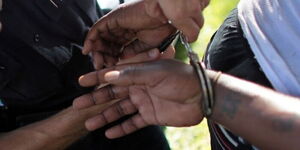The High Court has declared a rule at the University of Nairobi blocking students from representation by lawyers during the disciplinary process as unconstitutional.
Justice Anthony Mrima while speaking in the court on Wednesday, March 23, said that the rule contained in the University’s regulations governing the organization, conduct, and discipline of students, infringes Article 50(2)(g) of the constitution.
Article 50(2)(g) states that every accused person has the right to a fair trial which includes the right to be represented by an informed person.
The judge added that the right to a fair trial is among the rights and fundamental freedoms which cannot be limited at all.
“It is therefore one of the rights forming the basic structure of the constitution. It is, therefore, a right that cannot be waived or acquiesced.
“Article 50(1) is on the impartiality and independence of a court or a tribunal. The requirement, therefore, also has the element of how the court or tribunals are constituted,” the judge said.
Mrima was ruling on a case filed by a UON student, Martha Kerubo Moracha, three years ago.
Moracha who was pursuing undergraduate studies in Bachelor of Economics and Statistics was expelled on allegations of having unauthorized materials in the examination room.
She told the court that the university infringed her constitutional rights by denying her legal representation during the disciplinary process which is a technical process that needs legal representation.
In September 2020, the University of Nairobi issued a set of guidelines that would see expelled students readmitted to complete their studies.
The guidelines, however, only applied to students that showed remorse, served at least one year after expulsion, and demonstrated a change in character.
The Pardon Advisory Committee (PAC) set the guidelines that would see students appealing to the chair of the senate. However, students that faced criminal cases in court were exempted from the pardon.
“We cannot punish them forever. If we fail to give them (students) a chance, then we will kill their aspirations and hopes of the communities they come from,” Prof. Kiama said.












